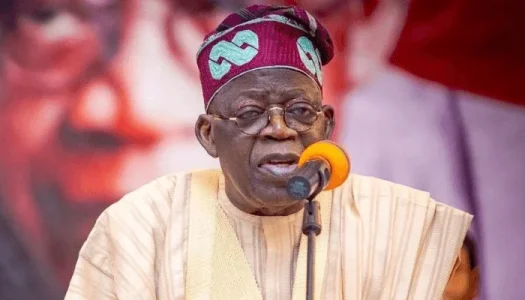
President Bola Tinubu has reinstated Nigeria’s old national anthem, "Nigeria, we hail thee," replacing "Arise, O Compatriots" after 46 years. The change, announced at the National Assembly’s 25th democracy anniversary, has sparked mixed reactions, with critics questioning the government's priorities amidst economic challenges.
President Bola Tinubu has signed into law the National Anthem Bill 2024, reinstating Nigeria’s old national anthem, “Nigeria, we hail thee,” from its independence era in 1960. The previous anthem, “Arise, O Compatriots,” which had been in use since its introduction by the military in 1978, will be replaced after 46 years.
The announcement of the Presidential assent came from Senate President Godswill Akpabio during a joint session of both chambers of the National Assembly. The session was particularly significant as it marked the 25th anniversary of Nigeria’s unbroken democracy, adding a layer of historic importance to the proceedings.
Earlier in the session, Deputy Speaker of the House of Representatives, Benjamin Kalu, had urged lawmakers and visitors to familiarize themselves with the lyrics of the old anthem, anticipating its reinstatement. The move was met with a mixture of nostalgia and surprise as the legislature and visitors prepared for the anthem's official comeback.
The old anthem, “Nigeria, we hail thee,” composed by Lillian Jean Williams with music by Frances Berda, held deep significance during Nigeria’s early years of independence. Its lyrics speak to themes of unity, justice, and national pride—values that the current administration hopes to revive and strengthen.
Public reaction to the change has been mixed. While some Nigerians welcome the return to a symbol of national heritage, many have voiced concerns about the timing of the decision. Some argue that the government should prioritize addressing pressing issues such as unemployment and economic hardship rather than symbolic changes.
In contrast, government officials argue that the anthem’s restoration is a step towards rekindling national pride and unity. President Tinubu, who was present at the joint session, emphasized the importance of national symbols in fostering a sense of identity and cohesion among Nigerians.
“The old anthem encapsulates the spirit of Nigeria’s founding principles and aspirations,” said Senate President Akpabio. “It is fitting that as we celebrate 25 years of democracy, we reaffirm our commitment to those ideals.”
As Nigeria embarks on this symbolic return to its roots, the nation remains divided on the implications and significance of this legislative action. The coming days will reveal whether the revival of “Nigeria, we hail thee” can inspire the unity and progress envisioned by its proponents, or if it will merely serve as a nostalgic reminder of a bygone era.




